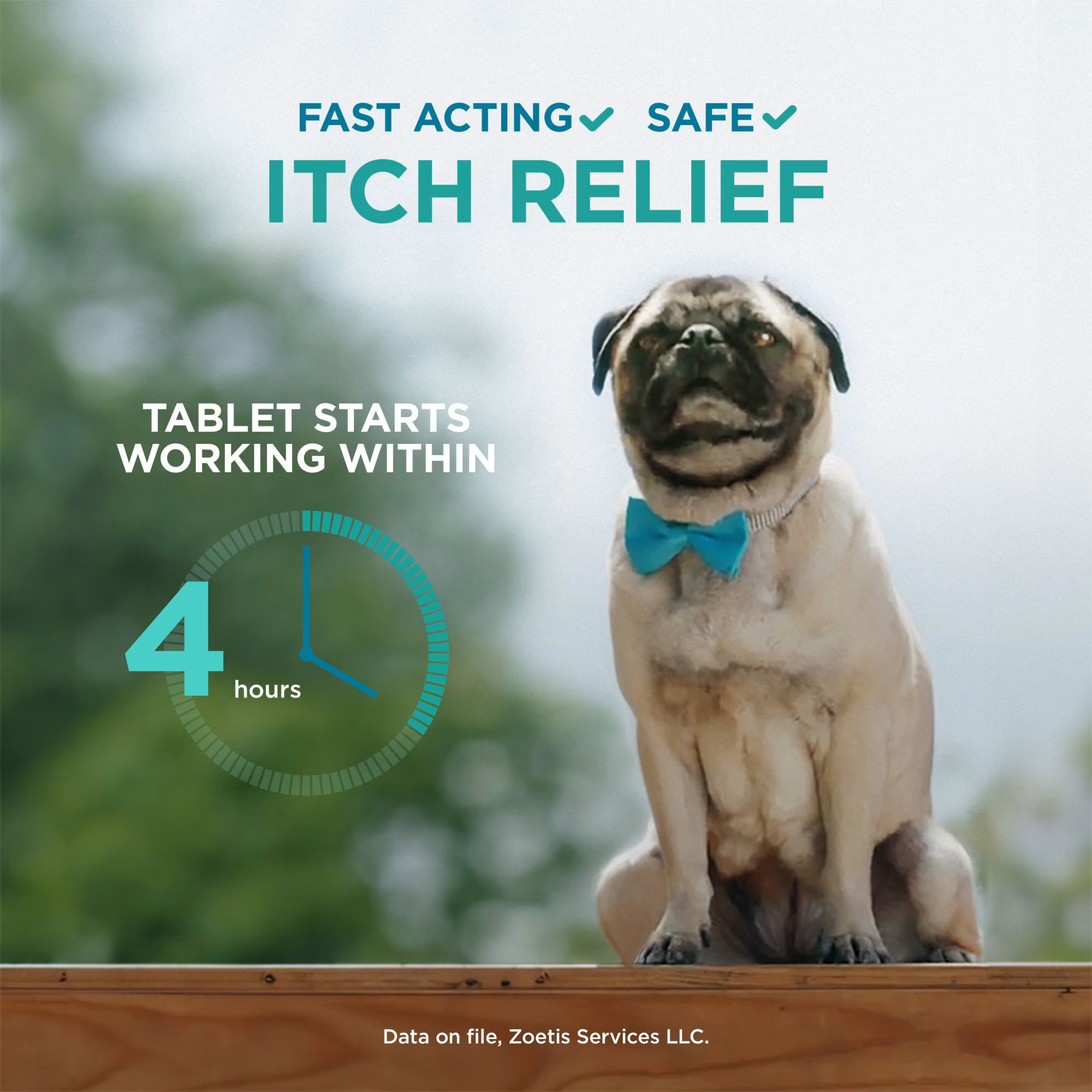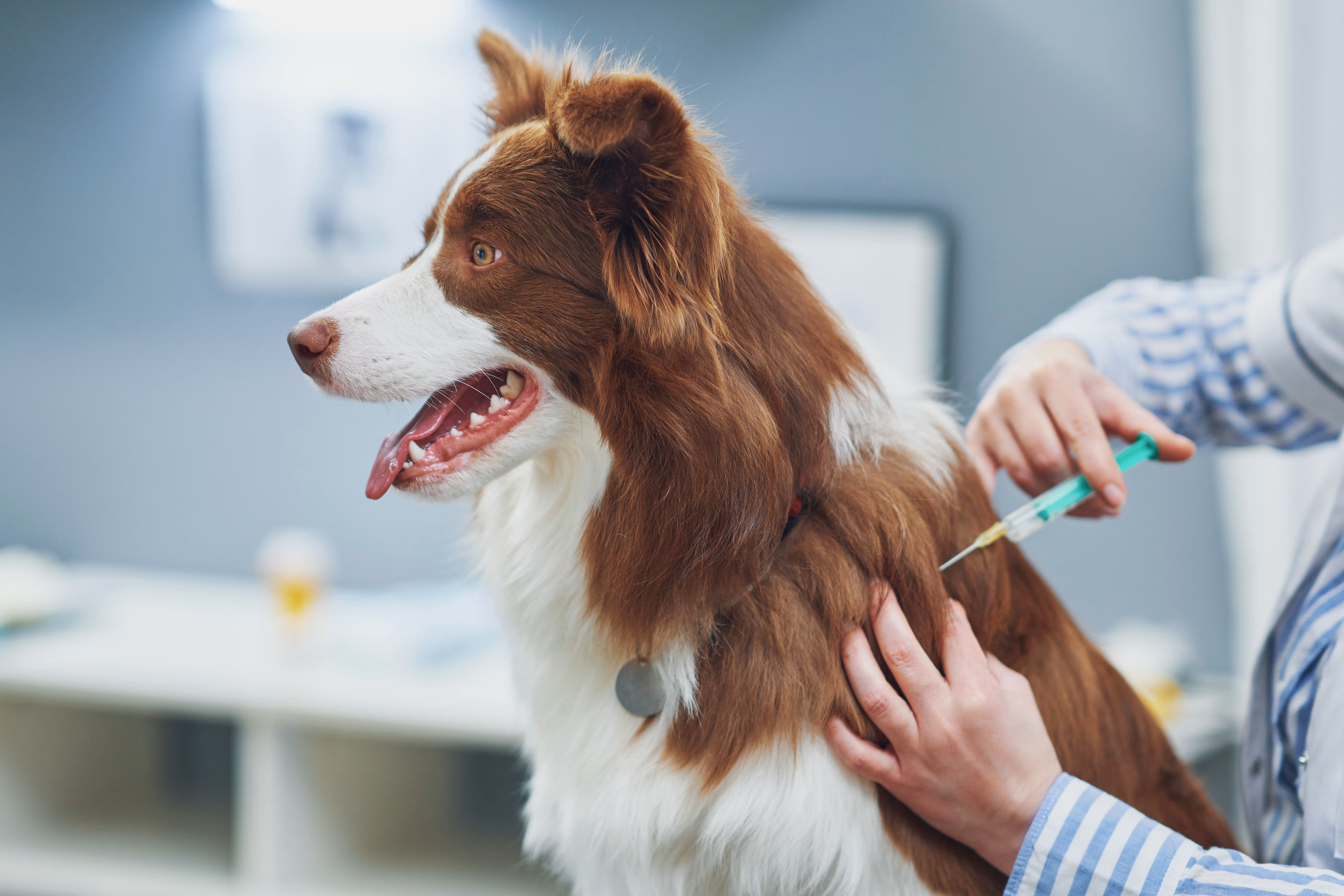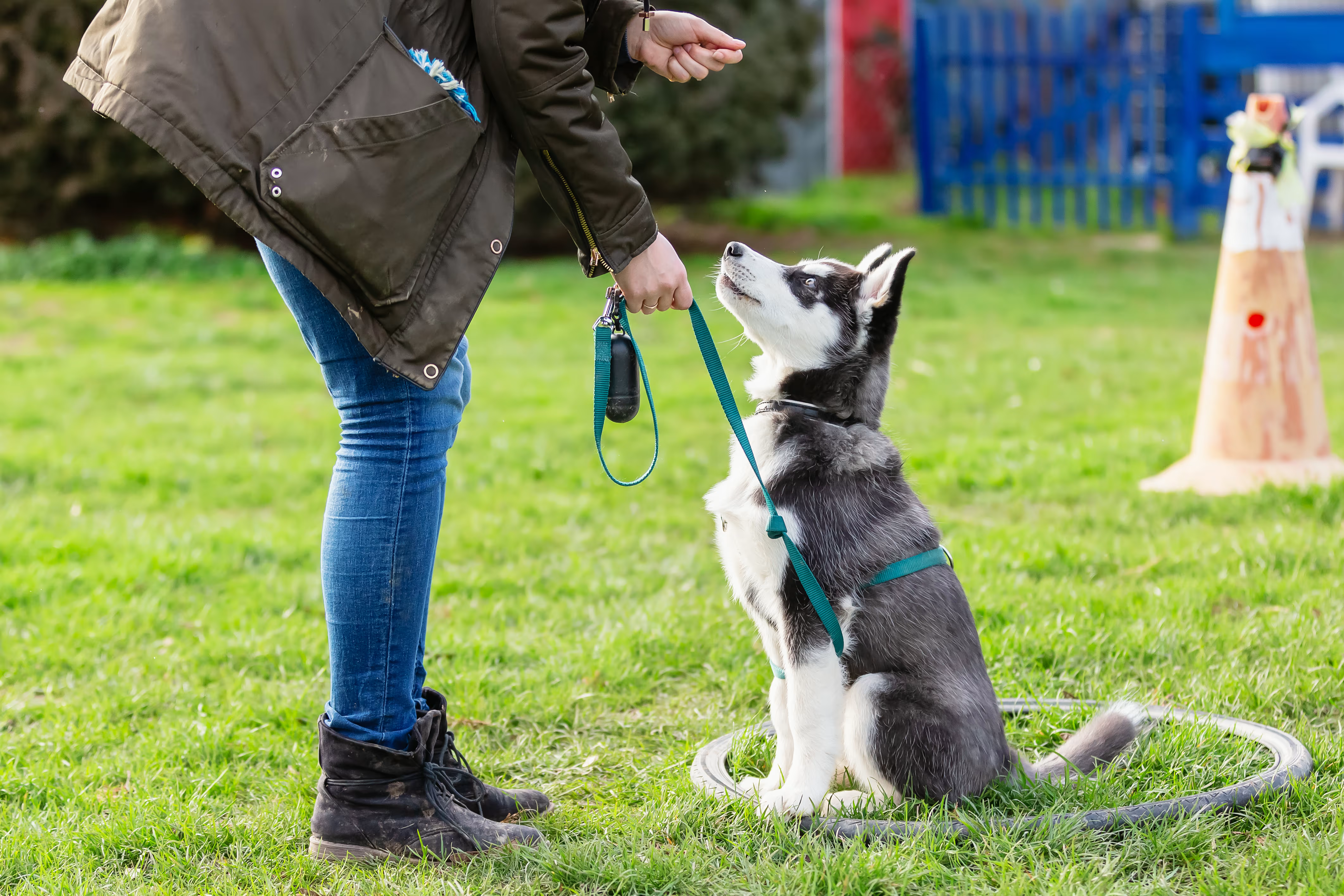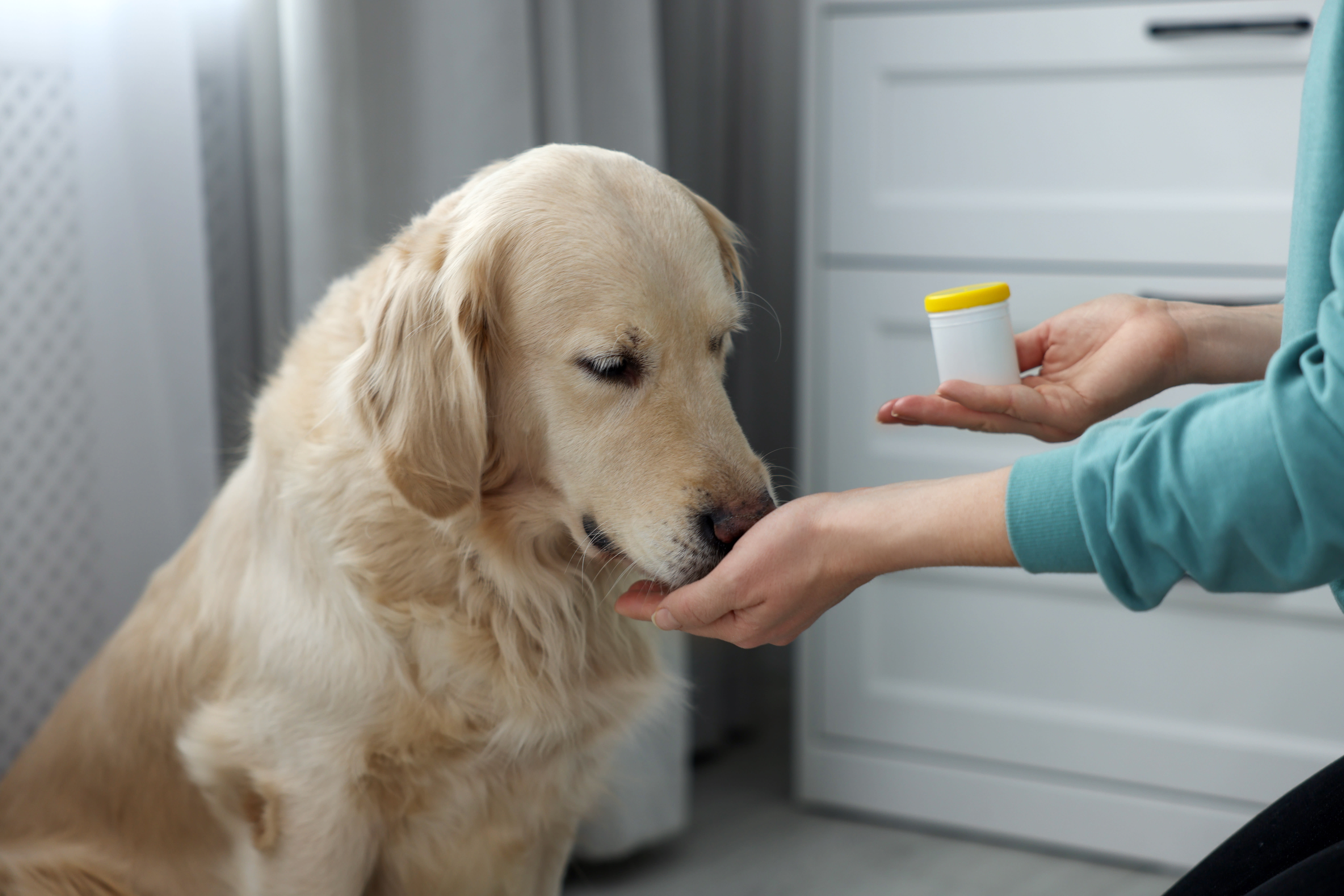Clomicalm
Related Searches
Frequently Asked Questions
Clomicalm (Clomipramine hydrochloride) is a prescription medication used to treat behavior problems such as separation anxiety.
Clomicalm is for dogs over 6 months of age.
-
Helps treat separation anxiety in dogs
-
Ideal for use as part of a veterinarian-recommended training and behavior modification program
-
Multiple strengths for easy dosing
Clomicalm is a tricyclic antidepressant that affects the levels of certain chemicals in the brain, primarily serotonin.
Clomipramine is the generic equivalent of Clomicalm.
Unless otherwise directed, give Clomicalm with food to help decrease the risk of gastrointestinal side effects. Always follow the dosage instructions provided by your veterinarian. If you have difficulty giving the medication, contact your veterinarian.
Clomicalm can be useful in helping to correct certain behavior problems, but needs to be used along with behavior modification methods to change the behavior. It may take several weeks before any effects are observed.
Clomicalm comes in tablet form.
Clomipramine
Talk to your veterinarian, in detail, about the behavior modification techniques you should use in conjunction with Clomicalm. Have your veterinarian explain the other treatment options that may be available to treat your pet's condition.
Tell your veterinarian if your dog is a male and used for breeding or if your dog has had seizures.
Notify your veterinarian of any other medications or supplements your pet is receiving, especially selegiline (L-deprenyl, Anipryl), or amitraz (Preventic collars or Mitaban dip). Also tell your veterinarian if your pet has had any reactions to previous medications.
If you miss a dose, give it as soon as you remember. If it is almost time for the next dose, skip the one you missed and go back to the regular schedule. Do not give two doses at once.
Do not use in dogs with known hypersensitivity to clomipramine or other tricyclic antidepressants, or in breeding male dogs, dogs younger than 6 months of age, dogs with a history of seizures, or concomitantly with drugs that lower the seizure threshold. Do not give within 14 days before or after treatment with a monoamine oxidase inhibitor (MAOI). Not for use in humans. Keep out of reach of children. In case of accidental ingestion, which can have serious complications, seek medical help immediately. There is no specific antidote for clomipramine. People with known hypersensitivity to clomipramine should administer the product with caution. Not recommended for behavior problems such as aggression. Other causes of inappropriate behavior unrelated to separation anxiety should be ruled out prior to prescribing. Caution is advised with concomitant use of anticholinergic or sympathomimetic drugs or other CNS-active drugs. Use with caution in dogs with cardiovascular disease, increased intraocular pressure, a history of narrow angle glaucoma, urinary retention or reduced gastrointestinal motility and preexisting liver disease. Safety has not been established in pregnant or lactating female dogs. The most common adverse reactions reported were emesis, lethargy and diarrhea.
Not for use in animals hypersensitive (allergic) to Clomicalm or other tricyclic antidepressants, such as amitriptyline.
Use with caution in animals with epilepsy, seizures, urine retention (problems urinating), decreased stomach/intestinal motility, constipation, liver or kidney disease, heart rhythm disturbances, thyroid disease, or glaucoma.
The safety of the drug has not been determined in pregnant, or lactating dogs and cats (female animals nursing their young). Do not use in males used for breeding.
Do not use in animals who are being treated, or have recently been treated with selegiline (L-deprenyl, Anipryl) or amitraz (Preventic collars or Mitaban dip).
May see lack of appetite, vomiting, increased appetite and weight gain, diarrhea, lethargy, sleepiness, dry mouth, difficulty urinating, or increased heart rate. Contact your veterinarian if these side effects are severe or persistent.
If your pet experiences an allergic reaction to the medication, signs may include facial swelling, hives, scratching, sudden onset of diarrhea, vomiting, shock, seizures, pale gums, cold limbs, or coma. If you observe any of these signs, contact your veterinarian immediately.
Store at room temperature in a tightly-closed container. Keep out of reach of children and pets.
Should overdose occur, your pet may have life-threatening reactions, such as seizures, heart arrhythmias, and heart failure, which may result in weakness, collapse, rapid breathing, or pale gums. If you know or suspect your pet has had an overdose, or if you observe any of these signs in your pet, contact your veterinarian immediately.
Consult your veterinarian before using Clomicalm with vitamins and supplements, monoamine oxidase inhibitors (MAOIs), such as selegiline (Anipryl), isoniazid, or amitraz (an ingredient in some tick collars, and in Mitaban, a treatment for mange), flea and tick collars, insulin, other antidepressant drugs, other drugs with anticholinergic effects (such as atropine), methimazole, other antithyroid drugs, fluoxetine, ketoconazole, or itraconazole, or cimetidine, since interactions may occur. Clomicalm may alter blood glucose levels. Avoid giving aged cheese to pets receiving Clomicalm. Aged cheese contains a chemical that could increase adverse side effects, since that chemical and the drug act on the same enzyme system in the body.









